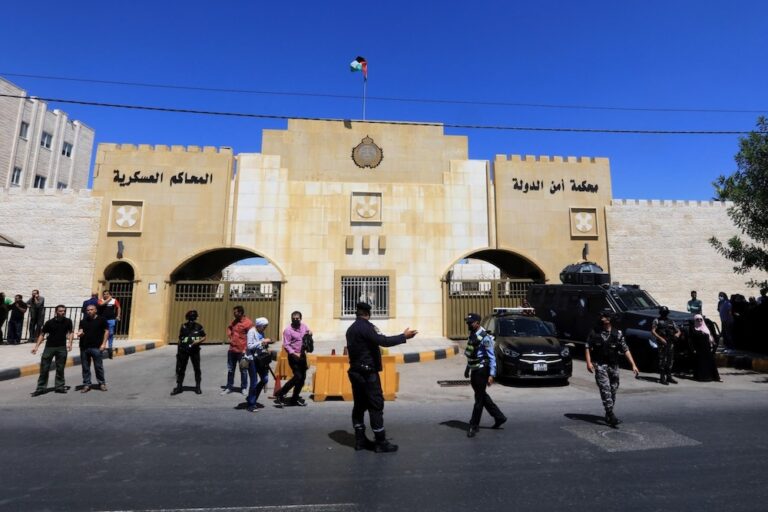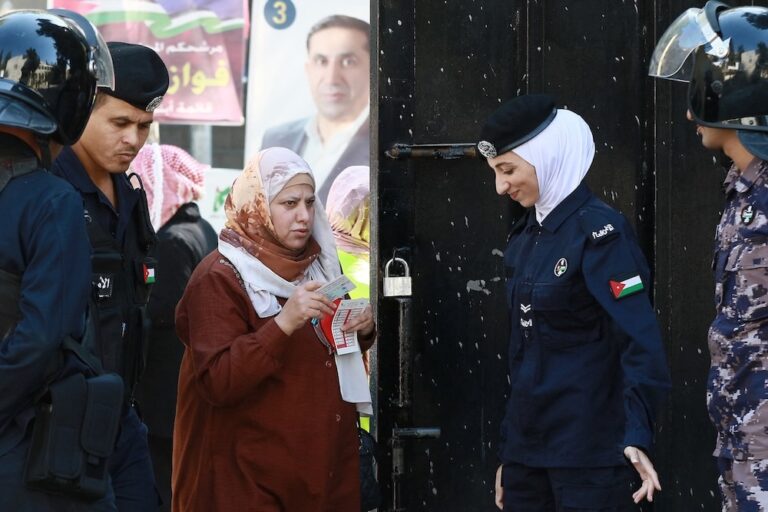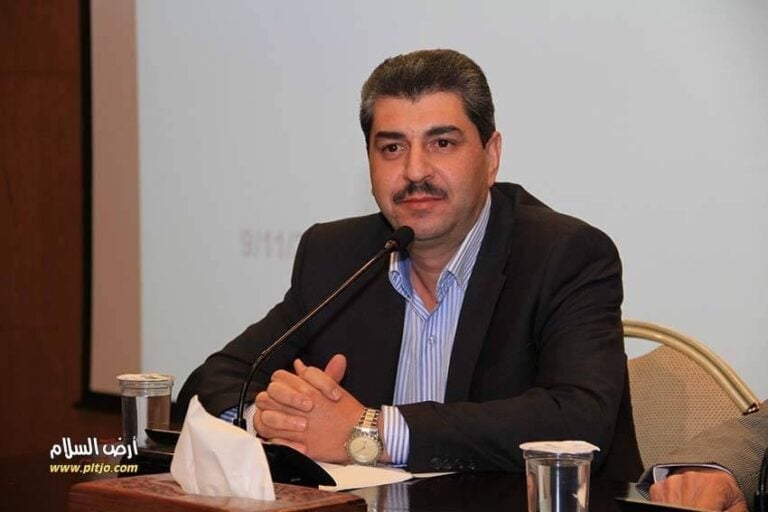(CPJ/IFEX) – A draft press law was approved last week by the National Guidance Committee (NGC) of the Jordanian Parliament. However, despite the NGC’s amendment of several highly restrictive provisions of the original bill submitted by the cabinet last month, the draft law constitutes a grave threat to press freedom in Jordan. **For background, see […]
(CPJ/IFEX) – A draft press law was approved last week by the National
Guidance Committee (NGC) of the Jordanian Parliament. However, despite the
NGC’s amendment of several highly restrictive provisions of the original
bill submitted by the cabinet last month, the draft law constitutes a grave
threat to press freedom in Jordan.
**For background, see IFEX press releases of 13 and 7 July 1998; for
background on the history of similar legislation, which had been imposed by
royal decree without parliamentary or public debate, see IFEX alerts and
press releases of 18 August and 11 June 1997**
The revised draft, as published in the daily “Al-Rai” on 30 July, contains
numerous articles that grant authorities sweeping powers to censor, fine and
suspend newspapers found to be in violation of a variety of vaguely worded
prohibitions. Of particular concern is Article 36, which bans outright,
among other things, the publication of any news or information which relates
to the armed forces and security forces; “infringes on the independence of
the judiciary”; “defames the heads of Arab, Islamic or friendly states”;
contains “false rumours”; “disseminates information on deviation or moral
corruption”; or which “instigates strikes, sit-ins or public gatherings in
violation of the law.” Such statutes allow authorities wide berth to punish
journalism they regard as critical or unfavourable.
Although fines under the current draft law have been significantly reduced
from the original draft, Article 46 calls for fines as high as 10,000JD
(roughly US$ 7500). Repeat offenders of these and other provisions of the
bill are required to pay an amount double that of the initial fine. More
troubling, however, is the power the draft gives to the courts to close down
newspapers indefinitely for matters of “public interest” or “national
security” (Article 49) – an ambiguous prescription that is subject to broad
interpretation. It is feared that, collectively, these powers to sanction
the press will have a chilling effect on journalists and will lead to an
inevitable increase in self-censorship and to the possible closure of
publications.
Other restrictions on the content of journalists’ work include Article 38,
which appears to authorize blanket censorship on court proceedings and
criminal investigations. It states that publications may not report on “what
the investigative authorities or court are assigned if it influences the
investigation, the court proceedings, or the status of the people involved.”
In March, authorities used similar language found in the PPL when the State
Security prosecutor banned all media coverage of the investigation and trial
of Leith Shubeilat, the prominent opposition figure who at the time was
standing trial for allegedly inciting an illegal demonstration in the
southern town of Ma’an in late February. A similar blackout was imposed on
coverage of the 8 April killings of lawyer Hanna Naddeh, his son Suhail and
prominent psychiatrist Awni Saad.
In addition to the prohibitions outlined in Articles 36 and 38, the draft
bill empowers authorities to pre-censor any foreign publication entering the
kingdom (Articles 30 and 36) – a practice currently employed by the Press
and Publications Department (PPD). Article 30 states that distributors or
printers of foreign publications are required to deposit two copies of each
publication to the PPD director prior to distribution, and the director has
the power to ban a publication’s distribution if its contents are judged to
violate any provision of the law. Over the past year, dozens of issues of
foreign newspapers such as the London-based dailies “Al-Hayat” and “Al-Quds
al-Arabi” have been banned by the PPD for what it has deemed their
unfavourable coverage of Jordanian affairs. At the same time, Article 34
gives the director of the PPD similar powers over the distribution of books.
Articles 30 and 34 serve only to further legitimize the practice of
censorship in flagrant violation of the most fundamental norms for free
expression.
Several other provisions of the draft law have prompted concern, including
Article 16, which grants the cabinet the authority to approve licences for
publications; Article 12, which stipulates capital requirements for
newspapers ranging from 50,000JD to 500,000JD; professional requirements for
journalists, including mandatory membership in the Jordan Press Association
(Articles 2 and 9) and the requirement that chief editors have eight years
of experience (Article 22); and Articles 18, 23 and 50, which specify
licensing and other procedural requirements, and under which non-compliance
is punishable by suspension or closure of newspapers.
Recommended Action
Send appeals to authorities:
internationally recognized right of journalists to report news and opinions
freely
right to “seek, receive, and impart information and ideas through any media
and regardless of frontiers” guaranteed by Article 19 of the Universal
Declaration of Human Rights
recommendations
in order to bring Jordan’s regulation of the press in accordance with
international standards:
“seek,
receive and impart information and ideas of all kinds”, including the
freedom of the press to disseminate a diversity of news and opinions, even
if these are opposed to or critical of prevailing state policies or public
officials
which apply to the press and which prescribe ill-defined or other
prohibitions on the content of journalists’ writing and their ability to
practise their profession freely
content bans outlined in Article 36, or allows the pre-screening or banning
of foreign newspapers and other publications in Jordan (Articles 30, 34, and
36)
of journalists to practise their profession freely, including provisions
that grant authorities unlimited power to license publications (Article 16);
set professional requirements for journalists (Articles 2 and 9); or which
stipulate financial requirements for the practice of journalism (Article
12);
banning of publications
prosecution of journalists in Jordan in response to their publication of
news and opinion
Appeals To
The Honourable Members of Parliament
c/o The Honourable Sad Hayel Srour
Speaker
Chamber of Deputies
Amman, JordanCopies to:
His Majesty King Hussein bin Talal
King of the Hashemite Kingdom of Jordan
The Royal Palace
Amman
The Hashemite Kingdom of Jordan
Fax: +962 6 634 755
Please copy appeals to the source if possible.


